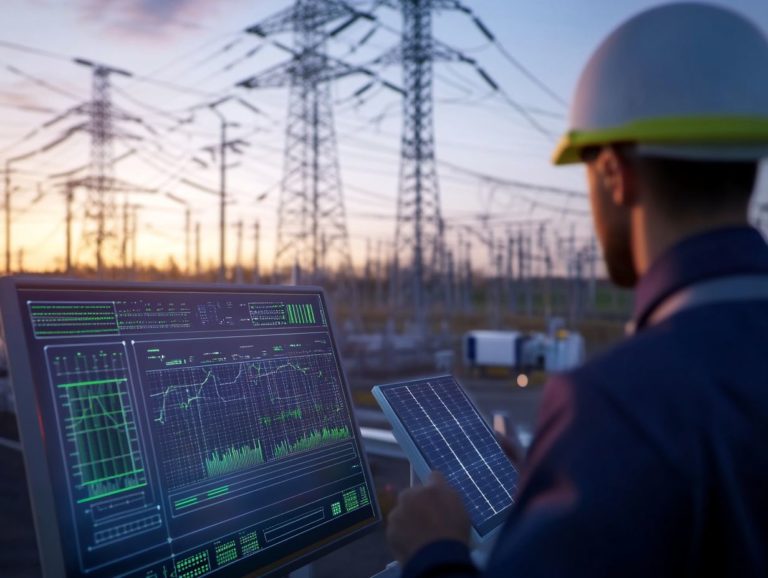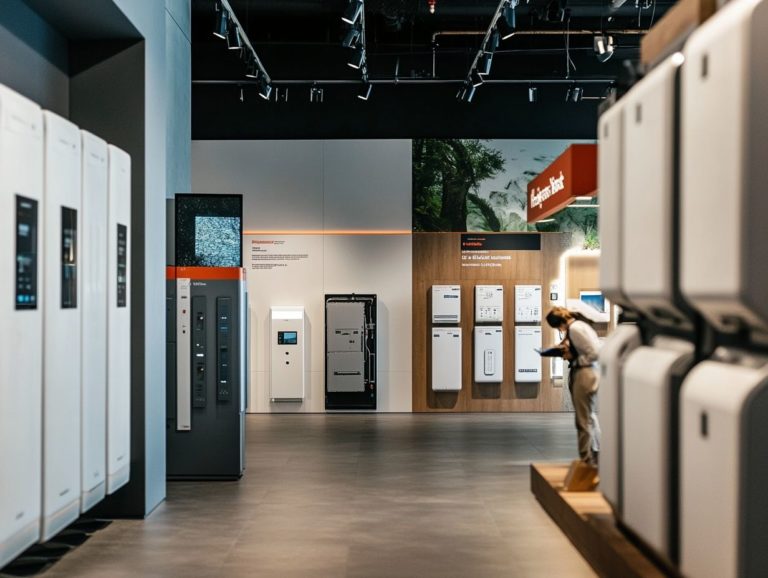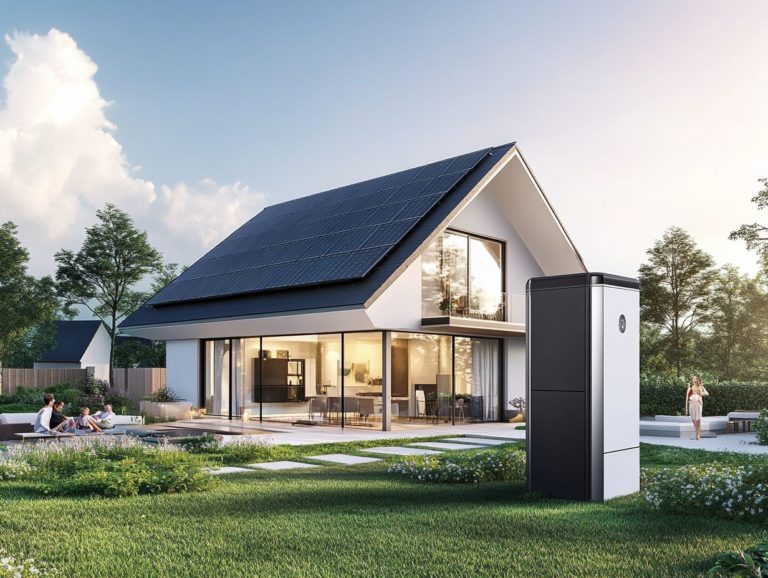How to Optimize Energy Storage for Your Home
As energy costs continue to climb and sustainability takes center stage, grasping the nuances of energy storage for your home becomes increasingly vital.
This article delves into the essentials of energy storage, highlighting its significance in contemporary living alongside various options available, from cutting-edge batteries to innovative thermal systems.
You’ll learn about crucial factors to consider when selecting the right system, practical installation advice, and the numerous benefits you can enjoy.
We will also explore future advancements that hold the potential to revolutionize how energy is stored in your home.
Contents
- Key Takeaways:
- Understanding Energy Storage for Homes
- Types of Energy Storage Systems
- Factors to Consider When Choosing an Energy Storage System
- Implementing Energy Storage in Your Home
- Benefits of Energy Storage for Homes
- Future of Home Energy Storage
- Frequently Asked Questions
- What is energy storage optimization for homes?
- Why should I optimize energy storage for my home?
- What are some ways to optimize energy storage for my home?
- How do home battery systems help optimize energy storage?
- Can I optimize energy storage for my home without investing in new technology?
- Is optimizing energy storage for my home expensive?
Key Takeaways:
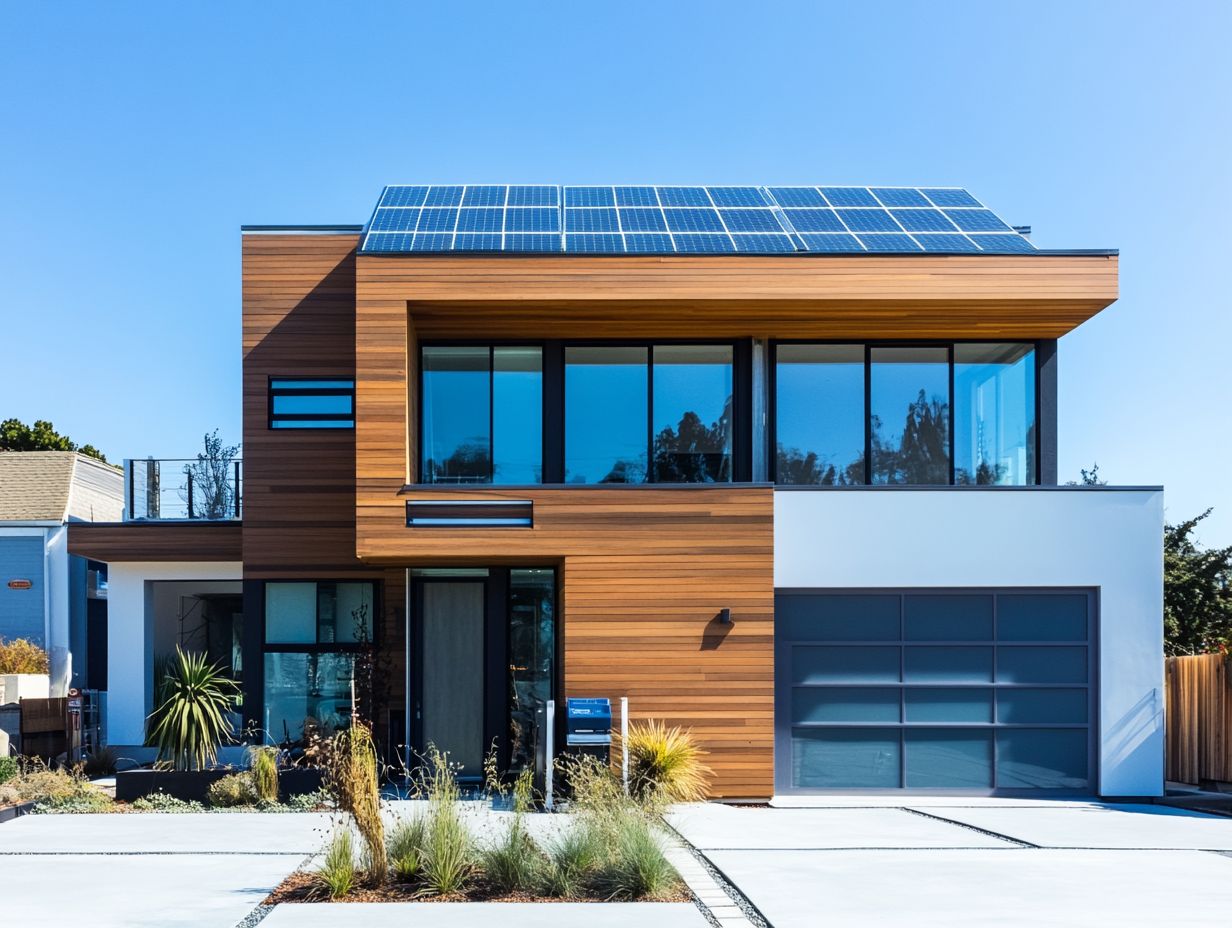
- Discover the importance of energy storage and its benefits for your home.
- Evaluate key factors like cost, efficiency, and maintenance when selecting a system.
- Adopt energy storage solutions for financial savings and a greener planet.
Understanding Energy Storage for Homes
Understanding how to store energy at home is crucial today s evolving energy landscape. Many homeowners are eager to lessen their dependence on electricity from the grid and trim their energy bills through eco-friendly options.
Home energy storage systems, particularly battery systems, enable you to capture solar energy and manage your energy consumption effectively. This enhances your energy independence.
By optimizing your energy use during peak hours, these systems provide significant financial advantages and play a crucial role in reducing your carbon footprint, promoting environmental sustainability.
What is Energy Storage and Why is it Important?
Energy storage involves capturing energy produced at one moment for use at a later time. It serves as a cornerstone in modern energy management systems.
Home energy storage solutions, like battery backup systems, are essential for residential energy setups. They enable you to store surplus energy generated from renewable sources, such as solar panels.
This approach grants you enhanced flexibility in energy usage, allowing you to optimize consumption based on your personal needs and the demands of the grid.
By harnessing and storing energy during peak production times, you can significantly reduce your reliance on the grid and lower your utility bills.
These storage systems also bolster energy resilience, enabling your home to withstand power outages and fluctuations in energy supply.
Integrating this technology not only promotes a sustainable living environment but also underscores the movement toward clean energy adoption, showcasing the dynamic capabilities of energy management in your everyday life.
Types of Energy Storage Systems
You have a range of energy storage systems at your disposal, each meticulously crafted to address distinct energy needs and elevate your energy management efficiency.
Whether you’re looking at batteries designed to harness solar energy or thermal storage options that capture heat for future use, these systems are essential for optimizing your energy consumption and minimizing your dependence on electricity from the grid. For more information, check out this guide on how to upgrade your home for energy efficiency, especially when considering time-of-use rates.
Batteries, Thermal Storage, and More
Batteries are a well-known form of energy storage, especially in home energy systems. They capture excess energy from renewable sources like solar. Alternatively, thermal storage systems provide a sophisticated method for storing heat for later use. This optimizes energy efficiency and trims down those energy bills!
These cutting-edge storage technologies utilize advanced mechanisms that enable the efficient capture and utilization of energy. For instance, lithium-ion batteries, celebrated for their high energy density and quick discharge capabilities, not only power residential applications but also propel electric vehicles. This pushes the adoption of greener technologies forward!
On the flip side, thermal storage systems employ materials like molten salts or phase change materials. They effectively store energy in the form of heat. By shifting energy consumption to off-peak hours, these systems significantly reduce operational costs and enhance grid reliability.
Ultimately, they contribute to fostering a more sustainable and resilient energy ecosystem.
Factors to Consider When Choosing an Energy Storage System
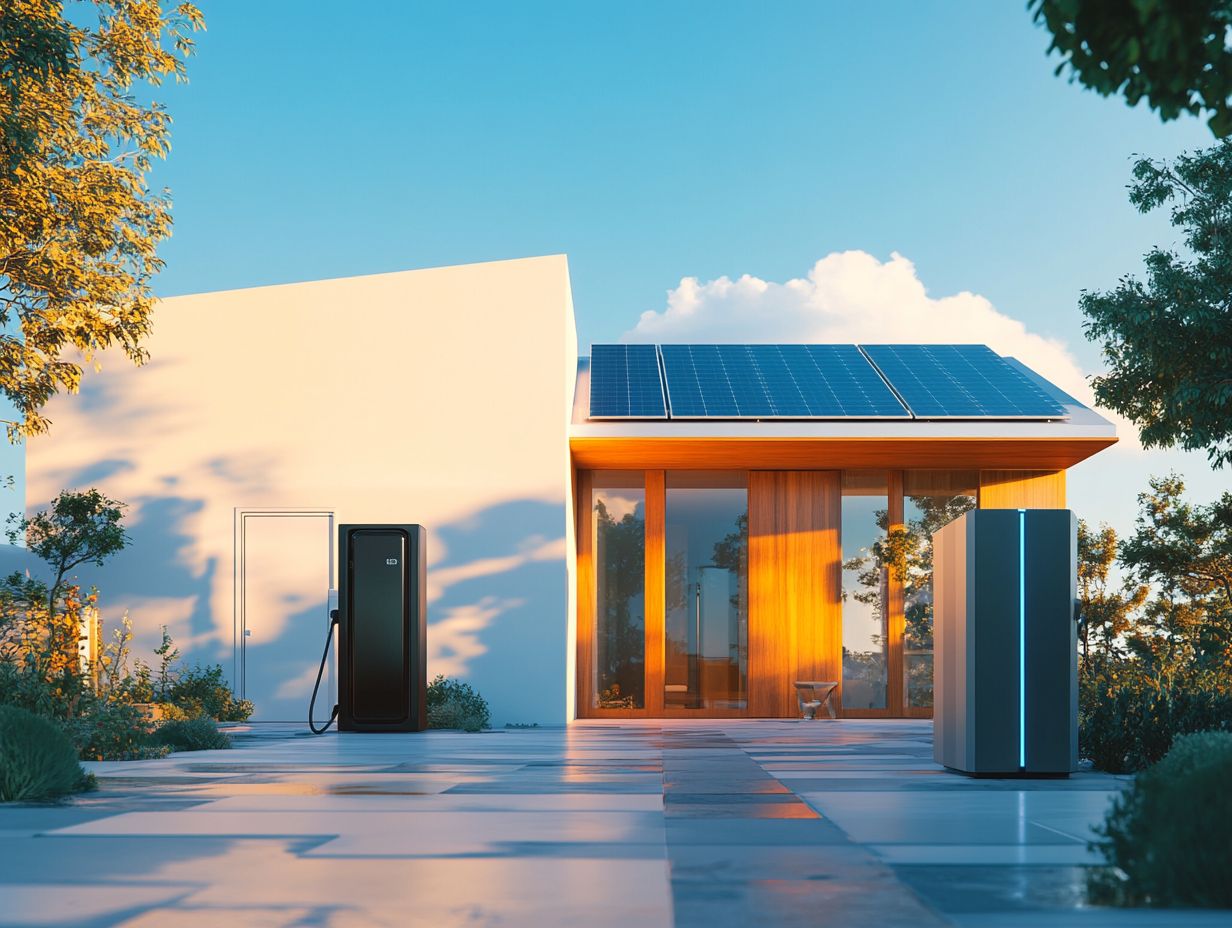
When selecting an energy storage system for your home, it’s essential to consider several factors to ensure it meets your energy needs. Focus on effectiveness and cost efficiency. Energy capacity is one of the most critical aspects to assess.
Pay close attention to elements such as cost, efficiency, and available government incentives for renewable energy solutions. These factors shape your decision and significantly impact your long-term energy savings.
Cost, Efficiency, and Other Considerations
Cost and efficiency are crucial when evaluating energy storage systems. They significantly influence your return on investment (ROI) and overall energy savings. By understanding energy capacity and available government incentives, you can make informed decisions that maximize your benefits!
If you invest in a lithium-ion battery system for solar energy storage, you could see a substantial reduction in your electricity bills, particularly during peak usage hours. By capturing excess energy generated during the day, you can tap into it later when energy rates soar! Additionally, consider learning how to optimize energy use with smart home tech to further enhance your savings.
Many regions offer enticing tax credits, rebates, and other incentives to encourage adoption. Act now to take advantage of these incentives! Navigating them ensures cost-effectiveness and enhances your energy efficiency in the long run.
This approach can drive down your expenses while promoting sustainable energy practices that benefit both your wallet and the environment!
Implementing Energy Storage in Your Home
Implementing energy storage in your home demands meticulous planning and thoughtful consideration. Ensure that the chosen energy storage systems integrate seamlessly with your existing energy management frameworks and support your household loads.
From the installation process to ongoing maintenance, grasping these steps is essential for effectively harnessing backup power and maximizing energy efficiency across your residential energy systems, including the smart energy solutions for modern homes.
Installation and Maintenance Tips
Proper installation and maintenance of your energy storage systems are essential for maximizing both longevity and efficiency! By adhering to best practices for battery systems and implementing regular maintenance schedules, you can significantly enhance energy efficiency and reliability.
Begin by selecting a well-ventilated area for installation. This step reduces the risk of overheating and optimizes performance. Periodic checks on connections and terminals are vital to prevent potential issues. Monitoring the software can alert you to any irregularities in system functionality.
Regularly calibrating your energy storage units and ensuring they remain free of dust and debris not only extends their lifespan but also guarantees optimal energy conversion rates. Should any performance issues arise, check for software updates or use diagnostic tools to assist in troubleshooting!
This ultimately fosters a more dependable energy supply for your needs.
Benefits of Energy Storage for Homes
Energy storage systems offer homeowners a range of compelling advantages, from substantial energy savings to increased energy independence. These systems not only provide backup power during outages but also help with energy management.
By adopting this technology, you can embrace a more sustainable lifestyle, reduce your environmental footprint, and make a positive impact on the planet.
Financial Savings and Environmental Impact
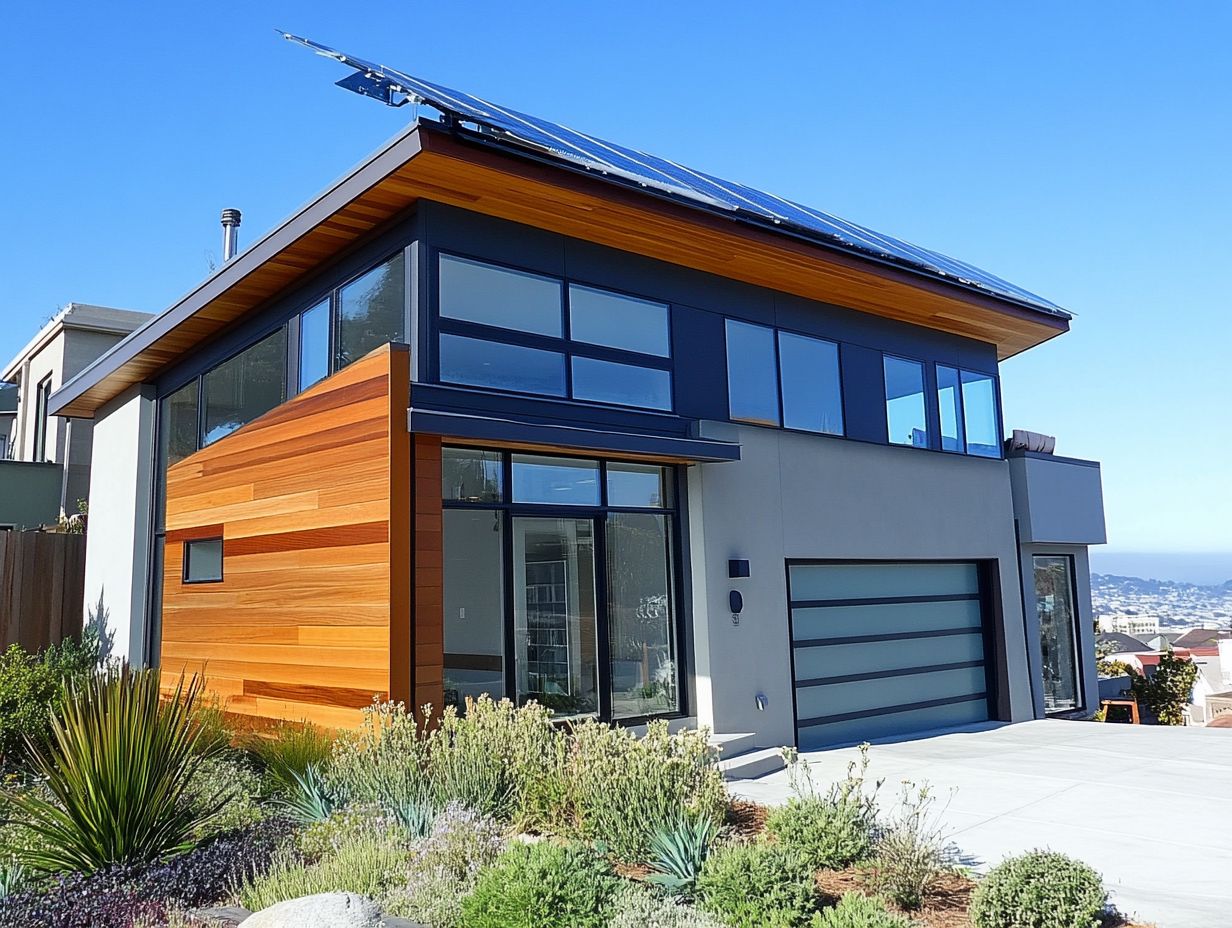
One of the main benefits of energy storage systems is the potential for financial savings alongside a positive environmental impact. By improving energy efficiency and using renewable sources, you can significantly lower your carbon footprint and your electricity bills.
Moreover, energy storage can unlock long-term financial benefits by reducing your reliance on grid power during peak hours when electricity rates are high. As energy prices fluctuate, a robust storage solution serves as a safety net against rising costs. For those looking to improve their home’s efficiency, how to plan an energy-efficient home renovation is essential. By easing demand on the grid, these systems foster a more stable energy market and support broader sustainability initiatives.
The combination of economic advantages and eco-friendly practices makes energy storage a smart choice for consumers eager to invest wisely while contributing positively to the environment through innovative energy solutions. For those looking to enhance their efforts further, learning how to make your home more energy efficient can be an excellent step.
Future of Home Energy Storage
The future of home energy storage looks bright, driven by rapid technology advancements and a growing consumer demand for sustainable energy solutions. Innovations in battery systems, energy management, and the integration of renewable sources are leading this evolution, making energy storage more efficient and accessible for homeowners.
New Technologies and Advancements
Recent developments in energy storage technologies are transforming the landscape, providing smarter and more efficient systems for your home. Innovations like solid-state batteries and enhanced energy management systems allow seamless integration with renewable sources, resulting in significant energy savings.
These cutting-edge solutions enable you to store excess energy generated from solar power and use it during peak demand hours. Notably, lithium-sulfur batteries and other emerging battery technologies offer higher energy density and longer lifespans compared to traditional lithium-ion options. These advancements reduce your reliance on fossil fuels and give you control over your energy consumption, contributing to a more stable grid and lower utility bills. To learn more about these innovations, explore the future of home energy efficiency solutions.
As this technology continues to evolve, its effects extend beyond individual savings to influence market trends, enhance grid stability, and accelerate your journey toward a sustainable energy future through energy optimization.

Frequently Asked Questions
What is energy storage optimization for homes?
Energy storage optimization for homes means maximizing the efficiency of storing energy for later use. This involves various technologies and strategies, such as energy management systems, to ensure that energy is stored and utilized in the most cost-effective and sustainable manner.
Why should I optimize energy storage for my home?

Optimizing energy storage for your home can provide numerous benefits, including lower energy costs, increased energy independence, and a reduced carbon footprint. By efficiently storing and utilizing energy, you contribute to a more sustainable environment.
Ready to invest in energy storage solutions for your home? Explore your options and make a positive change today!
What are some ways to optimize energy storage for my home?
You can easily boost your home s energy storage! Consider installing a home battery system, using smart energy management tools, and investing in energy-efficient appliances. Don’t forget to explore renewable sources like solar panels and electric vehicles.
How do home battery systems help optimize energy storage?
Home battery systems store excess energy from sources like solar panels for later use. This reduces your reliance on grid power and lowers your electricity bills.
They can also charge during off-peak hours when electricity costs less. This means even more savings for you!
Can I optimize energy storage for my home without investing in new technology?
Absolutely! Simple habits can make a big difference. Turn off lights and unplug devices when not in use, use natural light, and opt for energy-efficient bulbs.
Is optimizing energy storage for my home expensive?
The cost varies based on the methods you choose. While new technology, like home battery systems, may require an upfront investment, they can lead to long-term savings.
Plus, there are budget-friendly ways to enhance your energy practices, such as improving efficiency and using renewable sources without breaking the bank!



